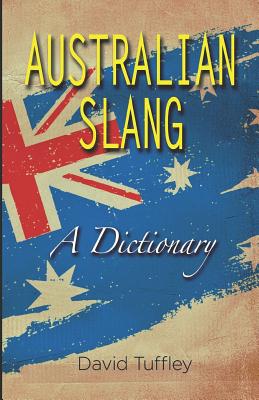Australian Slang: A Dictionary

Australian Slang: A Dictionary
Welcome to this latest edition of Australian Slang., a richly-textured, often ribald world of laconic humor. Now updated with over 100 new entries, this dictionary aims to do three things; (a) help the traveller to decipher what they might hear in everyday Australian life, (b) give the casual reader some insight if not amusement at how we Aussies speak, and (c) record for posterity many expressions that are slipping into disuse in the 21st Century. Readers will recognize many British and American expressions in this list. Australian English has absorbed much from Britain and America. For depth of knowledge of their own language, no-one beats the British. They invented the language after all. From its origins as an obscure West Germanic dialect and a thousand years in the making, English is the soul of what it is to be British. No-one understands or uses their language more skillfully. Across the Atlantic Ocean, American English had acquired a creative momentum that recognizes no boundaries. Americans have taken a good all-purpose language from the British and extended it to describe their dynamically changing world. They do not cling to old forms out of respect for tradition as the British do. Anything is fair game. The Irish playwright George Bernard Shaw famously observed that Britain and America (are) two great nations divided by the same language. The quote is also attributed to Oscar Wilde and Winston Churchill. Being a witty truism, people are bound to pick it up and use it in every day conversation. If it's funny and true, the saying will spread and become established. That is no less the case with Australian slang. For over a hundred years, Australia developed in splendid isolation its unique blend of English, tempered by the hardships of heat and cold, deluge and drought, bushfires and cyclones. The harsh environment united people in a common struggle to survive. People helped each other. Strong communitarian loyalties were engendered. It is from this that the egalitarian character of Australia evolved. There is a strong emphasis on building a feeling of solidarity with others. Strangers will call each other "mate" or "luv" in a tone of voice ordinarily reserved for close friends and family in other parts of the world. Everyone was from somewhere else, and no-one was better than anyone else. A strong anti-authoritarian attitude became deeply embedded in Australian English. This was mainly directed towards their British overlords who still ran
PRP: 140.12 Lei
Acesta este Prețul Recomandat de Producător. Prețul de vânzare al produsului este afișat mai jos.
126.11Lei
126.11Lei
140.12 LeiLivrare in 2-4 saptamani
Descrierea produsului
Welcome to this latest edition of Australian Slang., a richly-textured, often ribald world of laconic humor. Now updated with over 100 new entries, this dictionary aims to do three things; (a) help the traveller to decipher what they might hear in everyday Australian life, (b) give the casual reader some insight if not amusement at how we Aussies speak, and (c) record for posterity many expressions that are slipping into disuse in the 21st Century. Readers will recognize many British and American expressions in this list. Australian English has absorbed much from Britain and America. For depth of knowledge of their own language, no-one beats the British. They invented the language after all. From its origins as an obscure West Germanic dialect and a thousand years in the making, English is the soul of what it is to be British. No-one understands or uses their language more skillfully. Across the Atlantic Ocean, American English had acquired a creative momentum that recognizes no boundaries. Americans have taken a good all-purpose language from the British and extended it to describe their dynamically changing world. They do not cling to old forms out of respect for tradition as the British do. Anything is fair game. The Irish playwright George Bernard Shaw famously observed that Britain and America (are) two great nations divided by the same language. The quote is also attributed to Oscar Wilde and Winston Churchill. Being a witty truism, people are bound to pick it up and use it in every day conversation. If it's funny and true, the saying will spread and become established. That is no less the case with Australian slang. For over a hundred years, Australia developed in splendid isolation its unique blend of English, tempered by the hardships of heat and cold, deluge and drought, bushfires and cyclones. The harsh environment united people in a common struggle to survive. People helped each other. Strong communitarian loyalties were engendered. It is from this that the egalitarian character of Australia evolved. There is a strong emphasis on building a feeling of solidarity with others. Strangers will call each other "mate" or "luv" in a tone of voice ordinarily reserved for close friends and family in other parts of the world. Everyone was from somewhere else, and no-one was better than anyone else. A strong anti-authoritarian attitude became deeply embedded in Australian English. This was mainly directed towards their British overlords who still ran
Detaliile produsului













